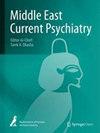Effect of a nursing educational program on competency and parenting practices among parents having children with attention deficit hyperactivity disorder: a randomized controlled trial
IF 1.6
Q3 PSYCHIATRY
引用次数: 0
Abstract
Attention deficit hyperactivity disorder is a common condition most prevalent among children worldwide. When it comes to parenting, parents of children with attention deficit hyperactivity disorder exhibit lower competency and more negative parenting behaviors than parents of children without the disease. This randomized controlled trial aimed to assess the effect of a nursing educational program on competency and practices among parents of children with attention deficit hyperactivity disorder. A total of 50 parents, most of whom were mothers with children aged between 5 and 10 years and previously diagnosed with attention deficit hyperactivity disorder, were chosen at random and split into equal study and control groups. The study group received eight sessions of the nursing educational program, with each session lasting 60 to 90 min, while the control group only received routine interventions. The results of the current study show statistically significant differences between the study group and control group in terms of positive parenting practices, negative parenting practices, over-reactive practices, functional family practices, interactive practices, satisfactory parenting sense of competency, and effectiveness of parenting sense of competency. The nursing educational program presents benefits in improving parenting practices and enhancing parenting sense of competency among parents of children with attention deficit hyperactivity disorder.护理教育计划对有注意力缺陷多动障碍儿童的父母的能力和养育方法的影响:随机对照试验
注意缺陷多动障碍是一种常见疾病,在全球儿童中最为普遍。在养育子女方面,注意力缺陷多动障碍患儿的父母比非患儿的父母表现出更低的能力和更消极的养育行为。这项随机对照试验旨在评估护理教育计划对注意力缺陷多动障碍儿童家长的能力和行为的影响。试验随机选取了 50 名家长,将他们分成人数相等的研究组和对照组,其中大部分是母亲,其子女年龄在 5 到 10 岁之间,曾被诊断患有注意缺陷多动障碍。研究组接受八节护理教育课程,每节课 60 至 90 分钟,而对照组只接受常规干预。本次研究结果显示,研究组与对照组在积极养育实践、消极养育实践、过度反应实践、家庭功能性实践、互动实践、满意的养育胜任感和养育胜任感的有效性等方面存在统计学意义上的显著差异。护理教育计划在改善注意缺陷多动障碍儿童家长的养育实践和提高养育能力方面带来了益处。
本文章由计算机程序翻译,如有差异,请以英文原文为准。
求助全文
约1分钟内获得全文
求助全文
来源期刊

Middle East Current Psychiatry
Medicine-Psychiatry and Mental Health
CiteScore
3.00
自引率
0.00%
发文量
89
审稿时长
9 weeks
 求助内容:
求助内容: 应助结果提醒方式:
应助结果提醒方式:


